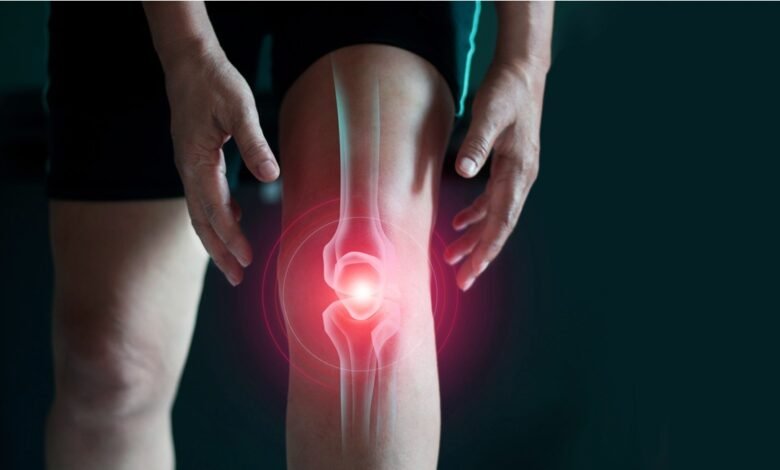Conquer Chronic Pain and Reclaim Your Life

Discover effective strategies and treatments to conquer chronic pain and reclaim your life in 2023. This comprehensive article explores medical treatments, alternative therapies, lifestyle changes, and support systems for managing chronic pain. Check out this valuable resource for more information:
Chronic pain is a debilitating condition that affects millions of people worldwide. It can disrupt daily life, limit mobility, and take a toll on mental well-being. If you’re someone who has been living with chronic pain, you know firsthand how it can drain your energy and diminish your quality of life. However, the year 2023 brings with it new opportunities to conquer pain and regain control over your life. In this article, we will explore various strategies, treatments, and lifestyle changes that can help you manage pain effectively and embrace a life free from its shackles.
Read More: 9 Best Natural Ways to Reduce Arthritis Pain
Understanding Chronic Pain
Chronic pain refers to persistent pain that lasts for weeks, months, or even years. It can result from various underlying conditions such as arthritis, fibromyalgia, neuropathy, or past injuries. Unlike acute pain, which serves as a warning sign of injury or illness, pain persists beyond the normal healing time and often becomes a condition in itself.
The Impact of Chronic Pain
Living with chronic pain can have a profound impact on all aspects of life. It can limit physical activities, disrupt sleep patterns, affect mental health, strain relationships, and hinder work productivity. Chronic pain can lead to feelings of frustration, helplessness, and isolation. It is crucial to recognize the multifaceted nature of chronic pain and adopt a holistic approach to its management.
Identifying the Causes of Chronic Pain
Before embarking on the journey to conquer chronic pain, it is essential to identify the underlying causes. This may require consulting with healthcare professionals who can conduct thorough assessments, review medical history, and order diagnostic tests. By understanding the root causes of your pain, you can tailor treatment approaches and adopt strategies that address the specific triggers.
Medical Treatments for Chronic Pain
Medical treatments for chronic pain vary depending on the underlying condition and the severity of symptoms. Conventional approaches often include medications, such as analgesics, anti-inflammatory drugs, or opioids. In some cases, interventional procedures like nerve blocks or spinal cord stimulation may be recommended. However, it is essential to work closely with healthcare providers to manage medication usage and minimize potential side effects.
Alternative Therapies for Chronic Pain
In addition to medical treatments, various alternative therapies can complement pain management efforts. These may include acupuncture, chiropractic care, massage therapy, and transcutaneous electrical nerve stimulation (TENS). Alternative therapies focus on promoting natural healing, restoring balance, and alleviating pain through non-invasive techniques. It’s important to explore these options under the guidance of qualified practitioners.
Lifestyle Changes for Managing Chronic Pain
Making lifestyle changes is crucial for the long-term management of chronic pain. Adopting healthy habits can enhance overall well-being and reduce pain levels. This may involve maintaining a consistent sleep schedule, managing stress through relaxation techniques, and incorporating regular physical activity into your routine. Additionally, ensuring a nutritious diet and staying hydrated can have a positive impact on pain management.
The Role of Exercise in Pain Management
Engaging in regular exercise is an effective way to manage pain and improve overall physical and mental health. Low-impact activities like walking, swimming, or yoga can help increase flexibility, strengthen muscles, and release endorphins, which are natural pain relievers. It is important to start slowly and gradually increase the intensity of your workouts while listening to your body’s cues.
Nutrition and Chronic Pain
Proper nutrition plays a crucial role in managing pain. Certain foods have anti-inflammatory properties that can help reduce pain and inflammation in the body. Incorporating a balanced diet rich in fruits, vegetables, whole grains, and lean proteins can provide essential nutrients and support overall wellness. Additionally, staying hydrated by drinking an adequate amount of water is important for maintaining optimal bodily functions.
Mind-Body Techniques for Pain Relief
The mind-body connection has a significant impact on managing pain. Techniques such as meditation, deep breathing exercises, and mindfulness can help redirect focus away from pain and promote relaxation. These practices reduce stress, enhance mental clarity, and provide a sense of calm. Engaging in activities that bring joy and fulfillment, such as hobbies, creative pursuits, or spending time in nature, can also positively influence pain perception.
Holistic Approaches to Managing Chronic Pain
Holistic approaches to pain management consider the whole person—mind, body, and spirit. These may include integrative therapies like cognitive-behavioral therapy (CBT), biofeedback, or hypnotherapy. Holistic approaches aim to address the emotional and psychological aspects of pain, providing tools and coping strategies to manage pain effectively and improve overall well-being.
Support Systems and Coping Strategies
Building a strong support system is crucial when dealing with chronic pain. Connecting with friends, family, support groups, or online communities can provide understanding, empathy, and a sense of belonging. It’s important to share experiences, learn from others, and find encouragement on the road to recovery. Developing effective coping strategies, such as setting realistic goals, practicing self-care, and seeking professional help when needed, can also contribute to managing pain more effectively.
Overcoming Challenges on the Road to Recovery
The journey to conquering chronic pain is not always smooth, and challenges may arise along the way. It is essential to stay persistent, patient, and adaptable. Embracing a growth mindset and seeking out resources, such as educational materials or reputable websites, can empower you to make informed decisions and overcome obstacles. Remember, each individual’s experience with pain is unique, and finding the right combination of strategies and treatments may require time and experimentation.
Embracing a Positive Mindset
Maintaining a positive mindset is crucial when living with chronic pain. It can be easy to fall into a cycle of negativity and hopelessness. However, cultivating optimism, practicing gratitude, and focusing on small victories can significantly impact your well-being and outlook on life. Surround yourself with positivity, engage in activities that bring joy, and celebrate achievements, no matter how small they may seem.
Conclusion
In 2023, the opportunity to conquer chronic pain and reclaim your life is within reach. By adopting a holistic approach that combines medical treatments, alternative therapies, lifestyle changes, and support systems, you can effectively manage pain and improve your overall well-being. Remember, everyone’s journey is unique, and it’s important to find the strategies that work best for you. Embrace the new year with optimism and determination, and take the first steps towards living a life free from the constraints of pain.
Read More: 13 Best Benefits of Using CBD in 2023
FAQs
Is it possible to live a fulfilling life despite chronic pain?
Living a fulfilling life is possible despite chronic pain. While pain may present challenges, adopting effective pain management strategies, seeking support, and focusing on activities that bring joy and fulfillment can help individuals lead meaningful lives.
Are there any natural remedies for chronic pain?
Certain natural remedies may provide relief for chronic pain. These include herbal supplements, essential oils, and topical creams with pain-relieving properties. However, it’s important to consult with healthcare professionals before trying any natural remedies to ensure safety and efficacy.
Can stress worsen chronic pain?
Yes, stress can worsen chronic pain. Stress triggers the release of certain chemicals in the body that can increase pain sensitivity. Implementing stress management techniques, such as relaxation exercises, meditation, or engaging in enjoyable activities, can help alleviate pain symptoms.
How important is a multidisciplinary approach in managing chronic pain?
A multidisciplinary approach to managing chronic pain involves collaborating with a team of healthcare professionals from various specialties, such as pain management physicians, physical therapists, psychologists, and nutritionists. This approach ensures a comprehensive and tailored treatment plan that addresses the physical, emotional, and psychological aspects of pain.
Can lifestyle modifications make a significant difference in managing chronic pain?
Yes, lifestyle modifications can make a significant difference in managing pain. Implementing healthy habits, such as regular exercise, maintaining a balanced diet, managing stress, and getting enough restful sleep, can help reduce pain levels and improve overall well-being.







